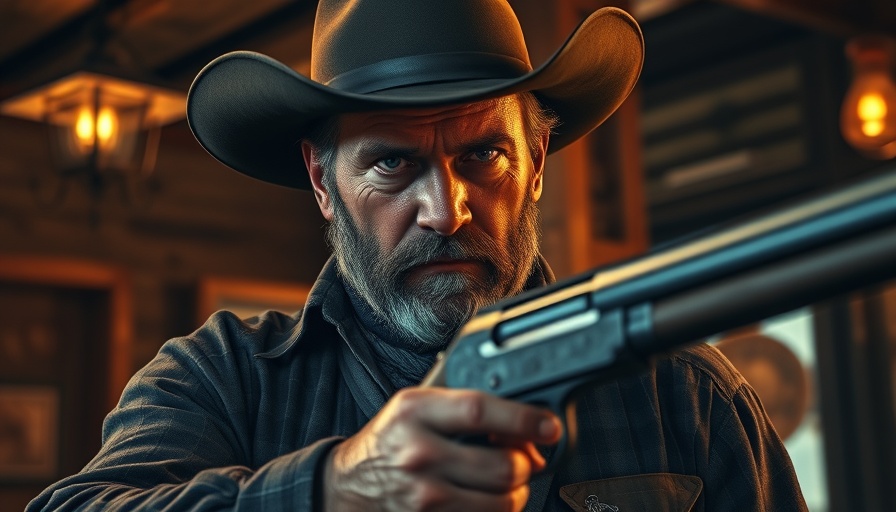
Unforgiven: A Turning Point in Clint Eastwood's Career
As we reflect on cinematic milestones, Clint Eastwood's Unforgiven (1992) stands out not just for its storytelling but for its deep philosophical themes that challenge the very fabric of the Western genre. This film marks an essential moment in Eastwood's illustrious career as both an actor and director, serving as a swan song that redefines heroism while examining the burdens of violence and morality.
The Deconstruction of the Western Hero
Unforgiven takes audiences on a journey where the mythical Western hero, played by Eastwood’s character William Munny, grapples with past sins and the futility of violence. Unlike traditional Westerns that celebrate gunfights and moral certainty, Eastwood delivers a narrative drenched in melancholy and regret. The film's portrayal of Munny's reluctance highlights a significant departure from the gun-slinging archetypes that defined the genre.
Legacy and Influence
Eastwood’s masterpiece is not only a critical reflection of his career but also a broader commentary on America's fascination with violence. As Roger Ebert noted, the Western was on life support as mainstream audiences drifted towards science fiction and fantasy. Yet, through Unforgiven, Eastwood manages to breathe new life into the genre by confronting its myths head-on, evoking a sense of emotional depth rarely achieved in film.
The Film's Fading Hero and Emotional Core
The heart of the film lies in its confrontation with mortality—the reality that every action carries weight. Munny's emotional journey from a life of violence to one adorned with regret signifies a profound evolution, urging viewers to reconsider what they think they know about heroism. This layer of complexity makes Eastwood's performance arguably one of his finest.
In an age where the Western frequently veers into caricature, Unforgiven remains a seminal piece of art that inspires filmmakers across genres, reminding us that the legacy of a true hero is often entwined with their sense of guilt and responsibility. It serves as a powerful reminder to examine the complexities of human experience, without the filters of vanity or glorification.
Eastwood’s influence is undeniable, and as we continue to celebrate his work, Unforgiven offers us a rewarding opportunity to explore the past and its reflections on contemporary narratives.
 Add Row
Add Row  Add
Add 




Write A Comment